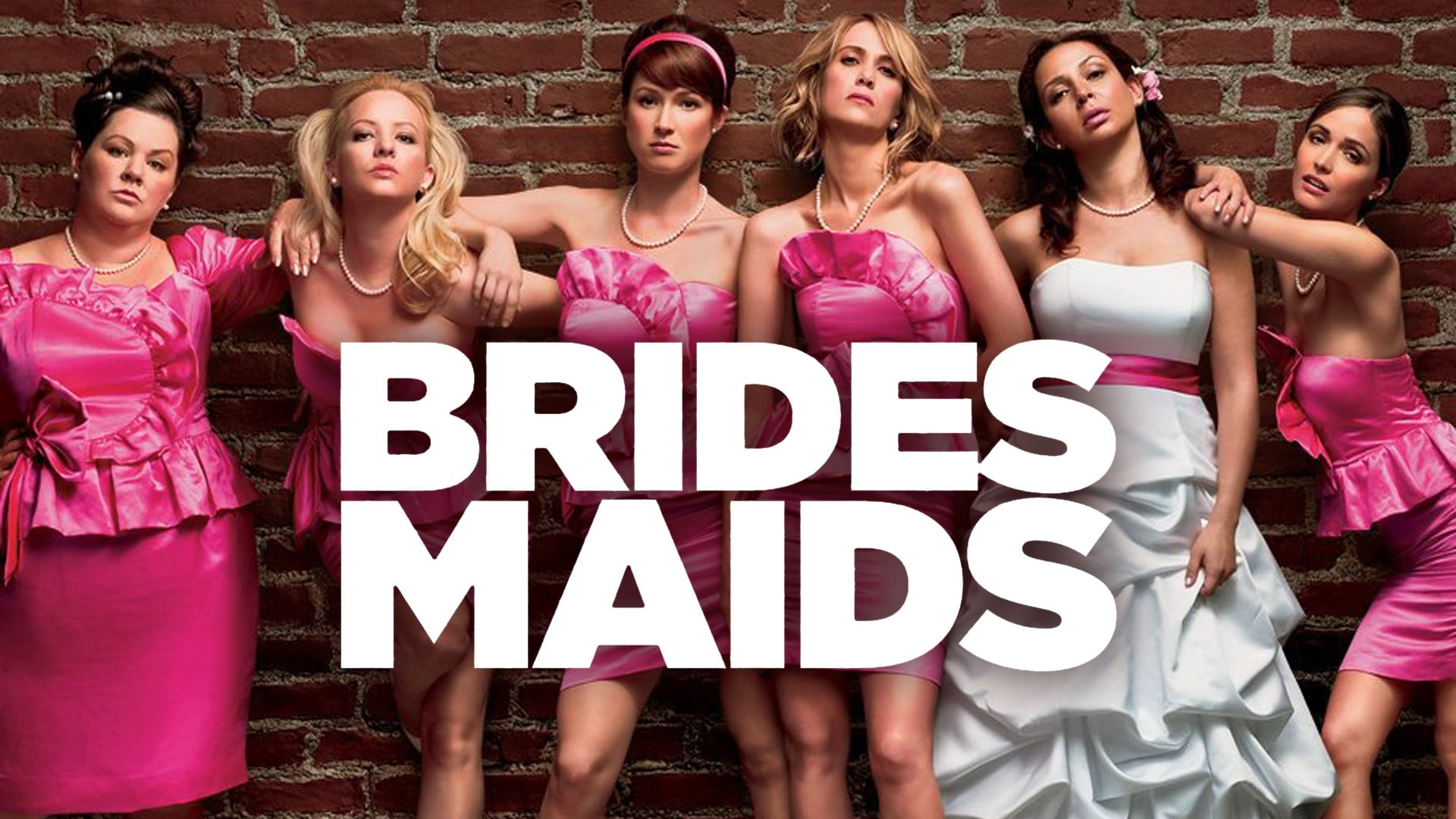

You expect her to nail the physical comedy, but it’s her work in the smaller moments of despair that gives “Bridesmaids” an emotional truth that makes it such a triumph.
Bridesmaids movieshare movie#
McCarthy rightly earned an Oscar nomination for her force-of-nature supporting turn, but Wiig, in her first movie lead turn, is wonderful too as Annie. So people were correct to celebrate “Bridesmaids,” even if much of the coverage at the time felt a bit patronizing, celebrating the victory without quite fully appreciating the movie. You’d be hard-pressed to look at the two or three decades prior to “Bridesmaids” and find more than a handful of great comic roles for women. Christopher Hitchens famously wrote around this time that women and humor are “antithetical,” and judging from the evidence, movie studio executives shared the opinion. You’re right in noting that the film itself, one of the best comedies of the past decade, tends to get lost in all the discussion about its importance and influence. Or maybe she was put off by the ticket taker’s condescending comment as she entered the theater and just disliked the movie on principle. Maybe she couldn’t get past McCarthy taking all the puppy party favors. Maybe she likes crass comedy but hates Wilson Phillips. Even then, maybe (probably?) I’m pigeonholing her objections. A movie boasting an extended comic sequence revolving around public diarrhea that ends with Melissa McCarthy emptying her bowels in a sink isn’t going to be everyone’s jam. GLENN WHIPP: Your wife is in good company, Justin. And I hope we can discuss “Bridesmaids” beyond simply what it represents, which is never as interesting as discussing what a movie actually is. But hey, the world definitely didn’t need to hear two guys talking about “The Avengers” last week, and with that behind us, I’m eager to dive with you into a discussion of a much better movie. Does the world really need to hear two guys talking about “Bridesmaids”? Probably not. And I think it’s worth keeping in mind as we enter our second week of writing about our readers’ favorites in the #UltimateSummerMovie Showdown. (My wife, working on her laptop nearby, paused every so often to roll her eyes in my direction.)Īll of which goes to show the folly of trying to pigeonhole movies and their audiences, even with the best of intentions. And I say that after spending a recent afternoon rewatching the movie, laughing to myself and sometimes cringing through my fingers at every one of Kristen Wiig’s extended verbal pratfalls. I adored it and thought it was one of the funniest comedies I’d seen in years - and not only that but also one of the most emotionally perceptive and penetrating studies of friendship, class envy and midlife despair to emerge from a major Hollywood studio in recent memory.

At the theater, the (male) ticket taker took one look at my wife and her roommate and said something to the effect of “You’re both going to love this movie! It was made for you!”Īs it turns out, “Bridesmaids” was decidedly not made for my wife she didn’t care for it at all. It also had its share of annoying side effects. Back in the summer of 2011, my wife - my girlfriend at the time - went with her roommate to see “Bridesmaids,” which had just opened to big box office, glowing reviews and a lot of chatter about how much it meant for women in comedy and women in Hollywood. JUSTIN CHANG: Glenn, bear with me, but I must start this week’s conversation with a personal anecdote. Times film critic Justin Chang sat down with entertainment columnist Glenn Whipp to discuss the enduring appeal of the Kristen Wiig-starring comedy, the obtuseness of the “Are women funny?” debate and the pros and cons of that scene. The #UltimateSummerMovie Showdown is under way, and voters have chosen “Bridesmaids” (2011) as their winner for Week 2, dedicated to movies first released in theaters from May 8-14 (between 19).


 0 kommentar(er)
0 kommentar(er)
